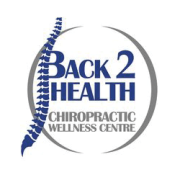Diet and Nutrition – Wellbeing Article by Sarah Worthington, Back2Health
Diet and Nutrition – Wellbeing Article by Sarah Worthington, Back2Health
A healthy diet is the foundation for health, well-being and optimal growth and development.

4. Diet can be utilised to help prevent and reverse certain chronic diseases including;
Obesity,
Diabetes,
Heart Disease
High Cholesterol
*Seek professional advice on these aspects of diet and nutrition.

Basics of a Healthy Diet
Some diets may prevent the ability to consume enough vital nutrients. In this case Supplementation may be necessary.
Vegetarian and Vegan diets limit the ability to ingest enough essential Vitamin B12 as it is mostly only available in Dairy and Meat products. Some foods are fortified with Vitamin B12 however it may be difficult to get enough through fortified sources. It is essential to keep a close eye on these levels in your body if you stick to a strict Vegetarian or vegan diet. Supplementation is often required and is safe and effective.
Other minerals that may be lacking in a vegetarian or vegan diet include, iron, calcium, vitamin D, selenium.
In present times our foods contain less vital nutrients than they have throughout history, due mostly to the degradation of our soils, over-use, and modified seeds and plants. It is possible that even with a healthy, balanced diet we are becoming deficient in certain nutrients. Supplementation can be safe and effective to ensure our bodies have enough of these vital nutrients to not just survive but function at an optimal level. Ensure you ask a professional prior to taking any form of supplement.